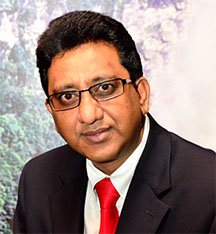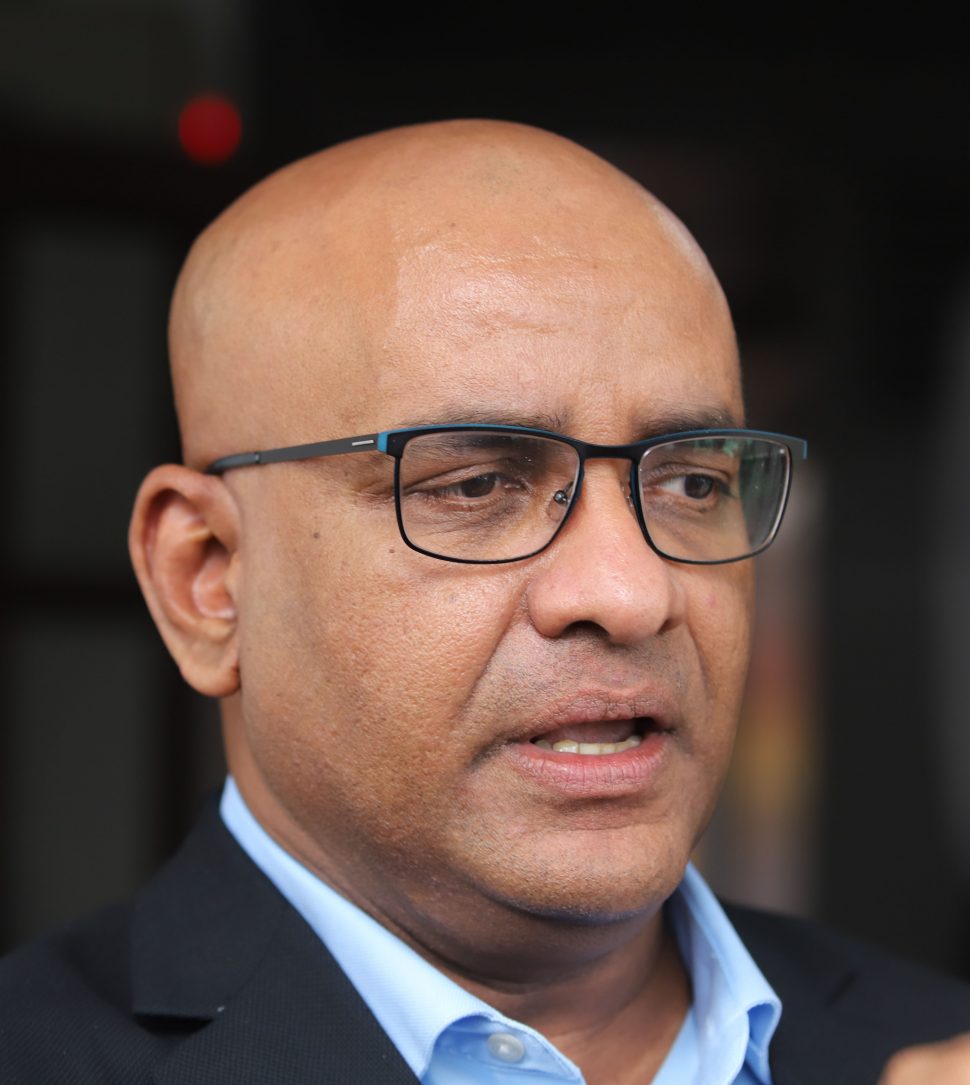The Opposition PPP/C has asked the Caribbean Court of Justice (CCJ) to order the APNU+AFC administration to hold elections no later than 18th September and that the Chairman of the Guyana Elections Commission (GECOM) be selected within 10 days from tomorrow.
In his submission to the Trinidad-based court of last resort for Guyana, Opposition Leader Bharrat Jagdeo called on the CCJ to give effect to the letter and spirit of the Constitution. The court will tomorrow issue orders based on its findings that the December 21, 2018 vote of no-confidence against the APNU+AFC administration was validly passed, thereby requiring elections, and that the Chairman of GECOM was unlawfully appointed. It had asked both sides to make submission by July 1 on what the orders should be.
Stabroek News had previously reported that Attorney General (AG) Basil Williams has submitted to the CCJ that it should order government to return to the National Assembly to pass a resolution to extend the time to hold elections and if this is unsuccessful, that the President dissolve the House and fix a date for the polls.

In the Opposition’s submissions made available to the news media yesterday, counsel for Jagdeo submitted that in order to ensure compliance with the Constitution, the CCJ orders that the Cabinet, including the president, resign but that the government shall remain in office and shall hold an election for members of the National Assembly within three months of 18th June 2019.
“In order to facilitate such an election, the President shall by proclamation appoint a date for the holding of the said election no later than the 18th September 2019,” states the submission made to the CCJ.
Jagdeo’s lead counsel Douglas Mendes SC, further asked that the court orders that the official list of electors to be used at the said elections be the official list of electors used for local government elections last November with a qualifying date of 31st October 2018.
Through his attorneys, Jagdeo has advanced that since the original date by which elections would have become due following the passage of the no-confidence motion – 21st March – has since passed, the only order which would comply with the spirit and intent of Article 106(7) of the Constitution is an order requiring an election to be held within a reasonable time, “but certainly not later than three months from the date on which this court (the CCJ) reversed the decision of the (Guyana) Court of Appeal and held the vote of no confidence to be valid.”
That date was June 18th.
Jagdeo expressed in his submission that he is content with an order requiring an election within three months of that date, in other words, as though the vote of no-confidence was passed on June 18th.
Canvassed
He noted that GECOM and the AG, on behalf of government, have both canvassed for a consequential order which would see elections being held at some point beyond Christmas Day.
Government’s position has been that this is essential since the voters’ list expired on April 30th and there is therefore need for a new one, which can only be realised after conducting house-to-house registration.
Attorneys for the state have projected that this process would be completed on December 25th the earliest.
According to Jagdeo, while the government has said that fixing a date for the election in accordance with their own timetable will not violate the Constitution as Articles 106(6) and 106(7) are to be interpreted as directory only, the obvious consequence of such a stance taken by the AG and GECOM is to ask the court to participate in, and to sanction a further violation of the Constitution.
Article 106 (6) states, “The Cabinet including the President shall resign if the Government is defeated by the vote of a majority of all the elected members of the National Assembly on a vote of confidence.”
Article 106 (7) adds, “Notwithstanding its defeat, the Government shall remain in office and shall hold an election within three months, or such longer period as the National Assembly shall by resolution supported by not less than two-thirds of the votes of all the elected members of the National Assembly determine, and shall resign after the President takes the oath of office following the election.”
The opposition leader opined that given that the next general election is due in the first half of next year, the effect of the consequential orders touted by the AG and GECOM would only render the vote of no-confidence ineffective.
Regarding expiration of the voters’ list, Jagdeo advanced that in
accordance with Section 2(3) of the Representation of the People Act and sections 14 and 15 of the National Registration Act, it is clear that once an election date has been fixed, the list of electors to be used for the election is the latest list, which, he said, is updated to add persons who may have recently become eligible or may for one reason or another have been left off the list or not yet put on it and to delete persons who have died or have become disqualified.
Jagdeo, a former president, said that since 2008, the official list of electors has been revised by the usual process of claims and objections in accordance with sections 6, 14 and 15 of the National Registration Act.
Lists prepared on this basis he added, were used in the general elections of 2011 and 2015 and in local government elections held in 2016 and November last year. Against this background, he noted that house-to-house registration had not been resorted to in any of those elections.
He opined that the threat to start such a process now is in a sense a deviation and is being used as a pretext to persuade the court to delay the elections for as long as possible.
Meanwhile, regarding the appointment of a chairman for GECOM, the Opposition Leader submitted that since the court found the appointment of retired Justice James Patterson to have been in breach of Article 161 of the Constitution, he (Jagdeo) and the president ought to now take steps to ensure the expeditious appointment of a replacement chairman.
The Opposition Leader is, however, asking the court, in whatever final consequential orders it makes, to set timelines by when this must be completed.
Jagdeo wants the court to specifically order that in order to facilitate the appointment of a chairman, he and the president are to communicate with each other in good faith, with a view to agreeing on a list of six persons, not unacceptable to the president, within one week of the date hereof.
He said that the president shall appoint a chairman from the list so provided within three days of the provision of any such list.
Further, stating that he was forced to incur significant legal expense to defend the proceedings, Jagdeo is hoping that he would be awarded court costs. He said too that Zulfikar Mustapha – a PPP executive member who mounted the challenge to the appointment of Patterson as the Chairman of GECOM, should also not be left out of pocket.
The matters will come up at 2 pm tomorrow, for what is to be the final hearing at which the CCJ will be making consequential orders.






